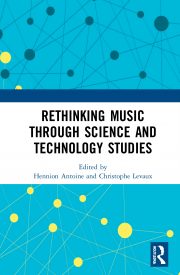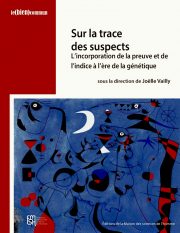
Jérôme Denis and David Pontille
in conversation with Maria Puig de la Bellacasa and Dimitris Papadopoulos
Video shot for the channel Ecological Reparation

The Corona cycleways and the new contours of the cycling city
Jérôme Denis and Nolwenn Garnier
On May 13, 2020, the City of Paris announced the creation within a few weeks of cycleways to support the process of unlock-down after the first wave of the health crisis that had emptied the streets of the capital. In line with initiatives that had flourished all over the world, these lanes were already beginning to spread in a few cities in France, and were at the center of a regional policy designed to promote the modal shift […]

Bruno Latour, Professor Emeritus, Paris Institute of Political Studies (Sciences Po), former Professor and current Honorary member at the Centre for the Sociology of Innovation (CSI) is Laureate of the 2021 Kyoto Prize in Arts and Philosophy.
The Kyoto 2021 Prize, announced by the Inamori Foundation, was awarded to Bruno Latour in recognition of his achievement in “Radically Re-examining “Modernity” by Developing a Philosophy that Focuses on Interactions Between Technoscience and Social Structure”.

Edited by Antoine Hennion & Christophe Levaux
This volume seeks to offer a new approach to the study of music through the lens of recent works in science and technology studies (STS), which propose that facts are neither absolute truths, nor completely relative, but emerge from an intensely collective process of construction. Applied to the study of music, this approach enables us to reconcile the human, social, factual, and technological aspects of the musical world, and opens the prospect of new areas of inquiry in musicology and sound studies. […]

L’incorporation de la preuve et de l’indice à l’ère de la génétique
edited by Joëlle Vailly
We are pleased to announce the publication of this new book at Editions de la Maison des sciences de l’homme to which Vololona Rabeharisoa and Florence Paterson have contributed.
The use of genetic data in the police and justice system has developed spectacularly over the last thirty years. Based on interviews, observation of trials and the examination of documents, this book analyses the social and legal issues of these innovations in France. The authors study the daily practices of […]

The CSI is pleased to announce the publication of “The Open Access Diamond Journals Study: Exploring collaborative community-driven publishing models for Open Access” in the form of two reports: an in-depth report and then associated recommendations arising from the study of open access journals across the world that are free for readers and authors, usually referred to as “OA diamond journals”. In conjunction with the SEPS (Socio-economics of academic publications) research program held at the CSI, this research sheds light on the diversity of resources and business models for the majority of existing open access journals, often dismissed compared to the more known author-payer model.

A central puzzle of COVID-19 is why some nations have so successfully contained the virus while others have failed. Even more puzzling is how nations with similar systems of government and demographics have experienced the pandemic in such different ways.
To understand what leads to such contrasting situations, an international research project entitled ” Comparative Covid Response (CompCoR)” has been launched, with the support of Schmidt Futures and the National Science Foundation, by teams […]

Morgan Meyer and Franck Cochoy
The health crisis has radically transformed the existence of the mask. Before the crisis, it was hardly visible in public debates and little worn by the public. Uncertainties and debates have proliferated as the crisis unfolds and the mask is an object that crystallises health, economic and social issues. What is most surprising is the following paradox: an object that is a priori very simple, cheap, and easy to produce… has been transformed into a coveted object, a controversial object. To understand this tension between mass object and singular object, we need to […]